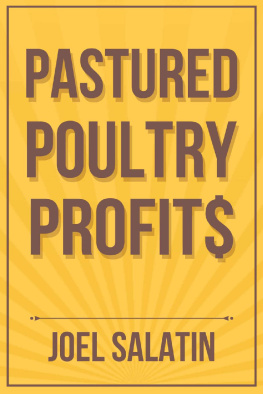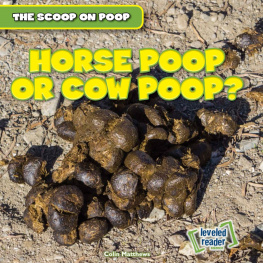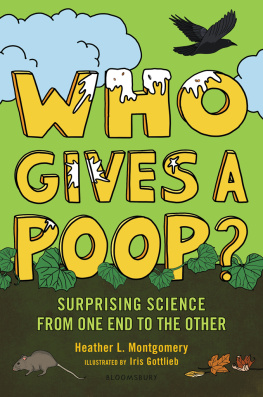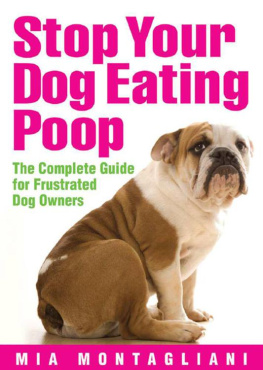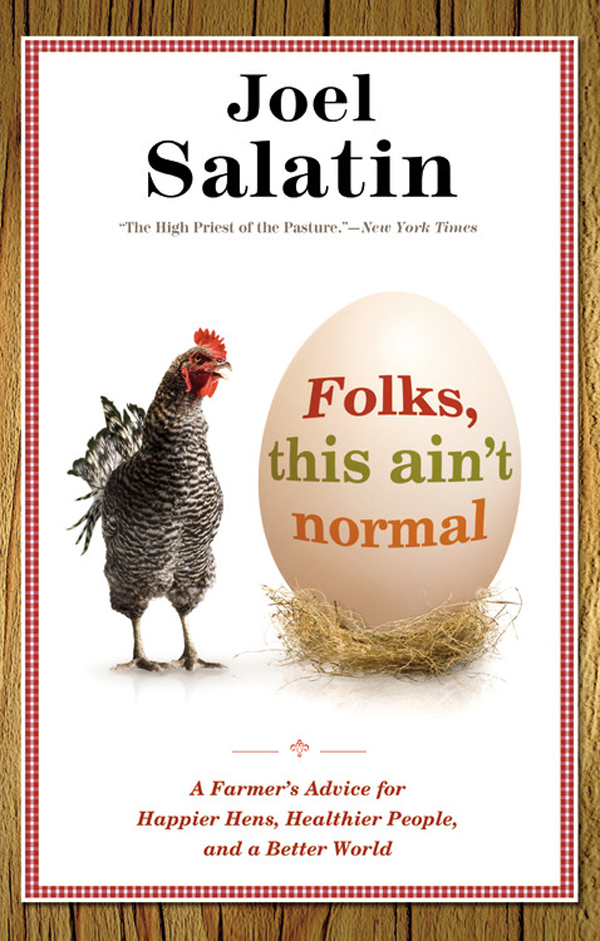In accordance with the U.S. Copyright Act of 1976, the scanning, uploading, and electronic sharing of any part of this book without the permission of the publisher constitute unlawful piracy and theft of the authors intellectual property. If you would like to use material from the book (other than for review purposes), prior written permission must be obtained by contacting the publisher at permissions@hbgusa.com. Thank you for your support of the authors rights.
Thank you for buying this e-book, published by Hachette Digital.
To receive special offers, bonus content, and news about our latest e-books and apps, sign up for our newsletter.
Sign Up
Or visit us at hachettebookgroup.com/newsletters
Copyright 2011 by Joel Salatin
All rights reserved. In accordance with the U.S. Copyright Act of 1976, the scanning, uploading, and electronic sharing of any part of this book without the permission of the publisher constitute unlawful piracy and theft of the authors intellectual property. If you would like to use material from the book (other than for review purposes), prior written permission must be obtained by contacting the publisher at permissions@hbgusa.com. Thank you for your support of the authors rights.
Center Street
Hachette Book Group
237 Park Avenue, New York, NY 10017
www.hachettebookgroup.com
www.twitter.com/centerstreet
Second e-book edition: October 2012
Center Street is a division of Hachette Book Group, Inc.
The Center Street name and logo are trademarks of Hachette Book Group, Inc.
The Hachette Speakers Bureau provides a wide range of authors for speaking events. To find out more, go to www.hachettespeakersbureau.com or call (866) 376-6591.
The publisher is not responsible for websites (or their content) that are not owned by the publisher.
ISBN 978-1-4555-0568-5
Praise for
Folks, this aint normal
Joel Salatin is a down-to-earth twenty-first-century pioneer, one of those rare contrarian thinkers whose words and work have the power to transform the way a generation thinks. FOLKS, THIS AINT NORMAL will help seed the new nature movement and inspire people everywhereespecially young people in need of some practical hope. And heres the bonus: The book is great fun to read. Sacred cows beware.
Richard Louv, author of The Nature Principle and Last Child in the Woods
In FOLKS, THIS AINT NORMAL, Joel Salatin says its high time we stopped taking our industrialized food system as a given and instead consider local, sustainable food production as the norm. Good plan. Whether or not you agree with his contention that we would be better off if the government got out of food regulation, his ideas are compellingly written, fun to read, and well worth pondering.
Marion Nestle, Department of Nutrition, Food Studies, and Public Health, NYU, and author of Food Politics
Salatin cheerfully describes himself as a Christian libertarian environmentalist capitalist lunatic. His book is highly illuminating, especially for those who dont feel cozy in those categories.
Kristin Ohlson, The Plain Dealer
Living on the Virginia farm that four generations of his family have tilled, hes in tune with the dirt and the rain and the seasons and the glorious funk of animals. He loves it all, and he sees this simpleras in nonindustrialway of farming as our way out of a food mess that depends on monoculture and chemicals.
Sandy Bauers, Philadelphia Inquirer
Through a mix of his wise and witty personal anecdotes, first-hand experience as a farmer and a father, and a thought-provoking assortment of tips and ideas, Salatin encourages all of us to become healers of the land, food, economy, and culture.
Helen Jupiter, Bellingham Herald
the types of people who would certainly benefit from reading FOLKS, THIS AINT NORMAL include: vegetarians, carnivores, environmentalists, McDonalds patrons, farmers market shoppers, Chipotle patrons, Tea Partiers, liberals, Christians, scientists, atheists, politicians, big farmers, small farmers, city folks, country folks, the 99%, and the 1%. In short, everyone who eats.
Darya Pino, Ph.D., Huffington Post
Pastured Poultry Profits: Net $25,000 in 6 Months on 20 Acres Salad Bar Beef
You Can Farm: The Entrepreneurs Guide to Start and Succeed in a Farming Enterprise
Family Friendly Farming: A Multi-Generational Family Business Testament
Holy Cows and Hog Heaven: The Food Buyers Guide to Farm Friendly Food
Everything I Want to Do Is Illegal: War Stories from the Local Food Front
The Sheer Ecstasy of Being a Lunatic Farmer
For twenty-five years I have watched Joel Salatin and his family struggle to make a living from a hundred open acres in northern Virginia. In addition to the usual weather vagaries that afflict all agricultural enterprises, Joel and other small farmers like him has had to struggle with government dictates and regulations that, intentionally or unintentionally, have denied him direct access to the marketplace. Most of these regulations are advertised as insuring that the American consumer gets healthy food, but in reality they actually prevent it. A policy of one-size-fits-all regulation means that a regulation that is a minor nuisance to a large industrial processor is a farm killer for a farmer trying to sell directly to a consumer.
As Joel makes clear in this book, these regulations are primarily designed to prevent access to the marketplace, not to regulate food quality or healthfulness. There are no regulations on the food served at a private party or a church social where the food is given away. The regulations only come into play when the food is sold. As Joel asks, what is it about private enterprise that makes the government believe small-scale food production is suddenly so dangerous?
In an era when local foods are all the rage, federal, state, and local regulations greatly hamper the growth of this alternative to industrial foods. No doubt many urban consumers will be shocked to read of the hostile harassment and intimidation put upon small-scale food producers by government inspectors whom Joel Salatin terms the Food Police. In what other field are you considered guilty until proven innocent? And, when proven innocent, there is never a word of apology or an exculpatory press release? After a few such instances of this, would you keep trying to sell food direct to the consumer?
Unfortunately, this taxpayer-financed war against local food production has operated under the media radar. Hopefully, this book will bring it to the attention of all alternative food consumers. However, there is more to this struggle than just fighting power-mad government bureaucrats. It extends to the menus of restaurants, fast food emporiums, the purchasing policies of alternative food vendors such as Whole Foods, and even to sympathetic consumers like yourself.
The big problem is that everything new has to start small and with a simple and cheap production prototype. Few self-financed farmers have the wherewithal to start at the scale most publicly held corporate customers require. Small farmers sell their labor through their products. Consequently, they seek high-labor, low-capital systems of production just as farmers did a century ago. However, the marketplace is not as flexible as it was a century ago. A restaurant that only wants one cut of meat is of little benefit to a small-scale producer who has to sell all the meat from an animal. Similarly, making a farmer with a husband-and-wife labor force fill out reams of paperwork and forms before they can deliver one bite of food to a franchised food store is a cruel and unusual punishment.


